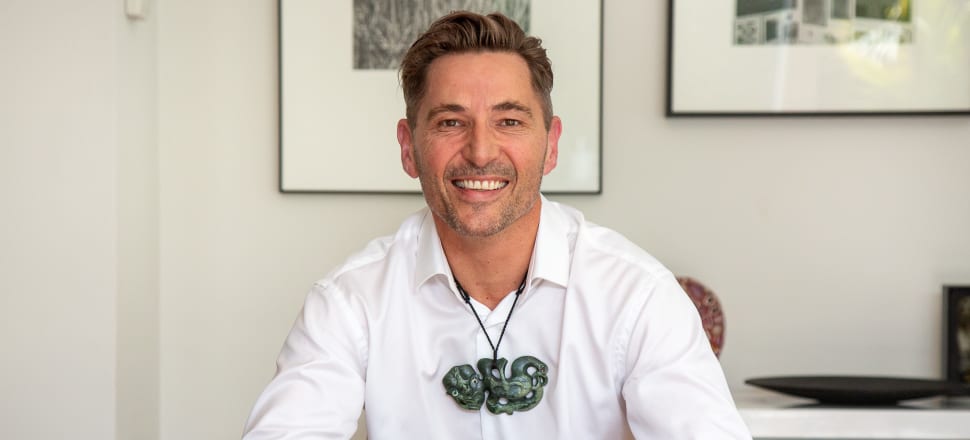
An annual parenting survey reveals parents are having a difficult time balancing their roles as parents and workers
It’s looking like a tough Christmas for a lot of families this year.
Almost two-thirds of parents say the rising cost of living is affecting their ability to raise their kids, with spending on gifts and expensive activities first on the chopping block.
A survey of Kiwi parents by insurance firm nib conducted in September and October of this year found 62 percent of parents had felt the squeeze, with Asian (73 percent), Māori (72 percent) and Pasifika (72 percent) feeling it significantly more than Pākehā parents (57 percent).
READ MORE: * Under-resourcing many parents is a choice our society makes * Parental oversharing a risk to New Zealand kids' privacy
Meanwhile, 60 percent of parents said managing their family and household was one of their main sources of stress, while 41 percent said finding that delicate balance between work and parenting was a main stressor.
That complex interplay between the two main jobs many Kiwis have - earning income and raising their kids - has only become more trying in recent years.
In 2020, just less than a third of parents said it was a main source of stress.
But as we now come to the end of the year with parents still recoiling from news of impending interest rates rises following the Reserve Bank’s decision to hike the OCR from 3.5 to 4.25 percent, the cumulative difficulties of the pandemic and a cost-of-living crisis mean it's going to be a difficult Christmas for plenty of families.
A third of parents are currently worried about their debt and mortgage repayments, ahead of home life pressures like navigating relationships (29 percent), health (27 percent) and separation from loved ones overseas (13 percent).
Neuroscience educator and parenting commentator Nathan Wallis acts as nib’s resident parenting expert.
He said in the four years the company has commissioned the annual survey, there had been a steady decline in how parents were faring.
“Each year it’s been getting progressively worse and people are feeling the pinch more and more,” he said. “With Covid and the current financial pressures, it’s created a perfect storm.”
And it looks like it’s going to get worse before it gets better.
“Parents have never done it so hard. In these circumstances, focusing on wellbeing and finding ways to access support becomes really important,” he said.
His advice for parents facing harsh financial dilemmas in the run-up to the holiday period is to harness the power of ritual.
“Using ritual for your family gives them time markers, that results in much less stress,” he said. “That could be a meal around the table, or saying what was good about your day.”
He said ritualistic practices like this helped create a sense of stability and could help soften the blow of uncertain times.
"If you can’t afford as many Christmas presents, fill Christmas up with lots of rituals, make new ones.”
One example Wallis gave was setting the challenge of buying family members gifts for less than $1.
He said another feather in cash-strapped parents’ bows come Christmas was spending time instead of money.
“The things that kids really remember is spending time with their parents, especially if you do child-led time,” he said. “That’s how you create the most long-lasting memories - doing what the kids want to do, allowing them to make that decision.”
Nib New Zealand chief executive Rob Hennin said Kiwi parents were facing economic hardship while still recovering from years of Covid disruptions.
“Parents were just beginning to adjust to a ‘new normal’ in the wake of Covid-19, when cash rates began to rise and house prices plummeted,” he said. “It’s no wonder they are now feeling the pressure.”
It’s an unevenly distributed pressure, with some ethnic groups bearing the brunt.
While 10 percent of Pākehā parents reported needing a secondary income to get by, the number was more than double for Pasifika and Asian parents.
Meanwhile, 23 percent of Māori families are going without petrol and skipping meals.
However, two-thirds of parents surveyed said they were still planning a holiday.
Hennin said this was nice to see, as parents had learned to prioritise health and wellbeing following the pandemic.
“Parents today are juggling a million things; the last thing they want is for their family’s health to be sacrificed. And with concerns about financial uncertainty and job security on the rise, this no doubt takes a toll on mental wellbeing,” he said.
“When you’re running on empty, you can’t be the best parent you can be.”

Christmas is traditionally a big strain on the wallet in this country, with gifts and travel and parties all coming at once.
In 2020, Finder’s consumer spending Christmas report found the average New Zealander estimated they would drop just over a grand on the holiday season: Around a third of that on gifts, and another third on travel. The rest they expected to spend on food, charity donations, decorations and Christmas hampers.
This year with many households already feeling the strain, Christmas is almost being seen as a public health risk in terms of the pressure it could exert. Health Navigator has published a list of tips for Christmas on a budget. The health website suggests families make their own treats, presents and decorations and put money limits on gifts.
Spend a bit less is the same message delivered by Reserve Bank governor Adrian Orr last week when he said his monetary policy was “deliberately trying to slow aggregate spending in the economy” and asked consumers to “cool the jets”.
But for families already forced to “cool their jets” by the rising cost of living, it will be difficult to cool them further.







